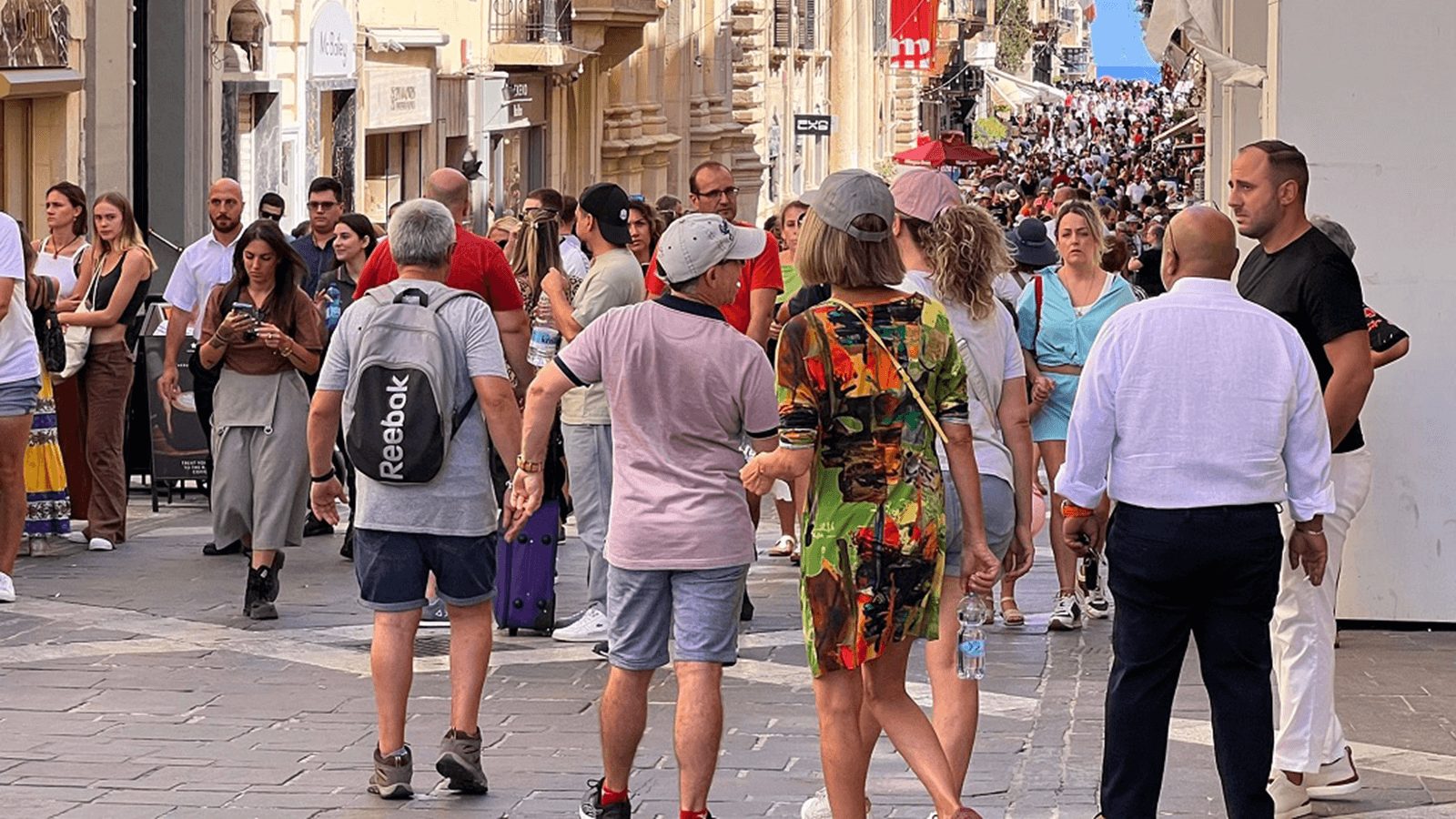Evolving Dynamics of Maltese Society

Malta, a small island nation in the Mediterranean, is undergoing a profound transformation that extends beyond the usual factors of external influences and economic migrants. The third volume of the Census of Population and Housing 2021, recently released by the National Statistics Office (NSO), sheds light on internal changes that have significantly shaped the fabric of Maltese society over the past decade.
Language Dynamics: English Gains Ground Among the Young
Exploring Linguistic Trends Among Maltese Youth
One noteworthy revelation from the census data is the shifting language landscape among Maltese children. Approximately a quarter of children under the age of 10 now identify English as their first language, with 15% of those aged 10-19 expressing the same preference. This departure from older generations, who predominantly cite Maltese as their primary language, hints at deliberate choices by parents to encourage English usage.
Factors Influencing Language Shift
Various factors contribute to this linguistic evolution. The increase in mixed marriages between Maltese and individuals of other nationalities plays a role, as does a growing awareness of the global importance of English proficiency. Significantly, there’s a gradual dismantling of prejudices against those favoring English, marking a positive stride towards unity in a nation once divided along language lines.
Breaking Down Barriers
The historical division between Maltese sub-cultures, characterized by language preferences and educational backgrounds, is slowly eroding. The choice of language no longer rigidly defines individuals, and social signifiers like accents or school affiliations are becoming less pronounced. This shift signals a positive move towards a more integrated and inclusive society.
Social Class in Flux: Navigating Class Dynamics in Modern Malta
From Saltburn to the Present: Redefining Aristocracy
The film “Saltburn” serves as a poignant reminder of Malta’s historical social class distinctions. However, in contemporary times, wealth and grand estates no longer exclusively determine social standing. The once-rigid Maltese aristocracy has dwindled to a few families, and social class itself is in a perpetual state of flux. With a decline in universally accepted manners, class distinctions are becoming increasingly intangible.
The Bilingual Challenge: Preserving Maltese in the Face of English Dominance
Promoting Bilingualism in a Multicultural Job Market
As English gains prominence among the young, concerns arise about the future of the Maltese language. Advocates argue for the importance of bilingualism in the multicultural job market. Encouraging young Maltese individuals to embrace both languages can provide them with a competitive edge in an increasingly globalized world.
Rethinking Education Emphasis
Rather than placing sole emphasis on literary texts, there’s a call for a curriculum shift towards appreciating the spoken language’s beauty. Cultivating a genuine love for both Maltese and English can foster linguistic richness and expressiveness beyond mere academic requirements.
Household Transformations: Exploring Changing Family Structures
The Rise of Single-Person Households
The census data reveals a significant increase in single-person households, constituting 18.1% of total households. Primarily comprising individuals aged 30-64, these households often emerge from marital breakdowns, with one or both parties opting for separate living arrangements. The prevalence of single-person households may also contribute to the heightened sense of loneliness identified in recent studies.
Empty Nesters and Childless Couples
With a staggering 76.1% of households having no dependent children, there’s a noticeable shift in family structures. Factors such as young people leaving Malta or choosing to live independently contribute to the rise in childless households. The declining birth rate over the past six decades further amplifies this trend.
Unraveling “Other Households without Dependent Children”
The census data introduces a category labeled “other households without dependent children,” totaling 36,903. While the exact nature of this classification remains unclear, it raises questions about the emergence of multiple unrelated individuals cohabiting. This phenomenon warrants further investigation to understand its implications on societal norms.
Conclusion: A Glimpse into Malta's Socio-Economic Tapestry
The snapshot provided by the Census of Population and Housing 2021 illuminates the evolving dynamics of Maltese society. From language shifts and changing household structures to the redefinition of social class, Malta is navigating a transformative journey. As the nation grapples with these changes, it remains to be seen how these shifts will shape the future identity of this resilient Mediterranean gem.
FAQs:
How has the language landscape changed among Maltese children?
The census reveals that nearly a quarter of children under 10 consider English their first language, signaling a shift from older generations.
What factors contribute to the rise of English usage among Maltese youth?
Mixed marriages, increased awareness of English’s global importance, and a reduction in prejudices against English speakers all play a role.
Is social class still a significant factor in modern Malta?
While social class distinctions persist, wealth and large estates no longer exclusively determine one’s standing, marking a departure from historical norms.
How are educational backgrounds impacting language preferences in Malta?
With a shift from church schools to independent schools, there’s a noticeable change in English accents, highlighting the evolving linguistic landscape.
What does the rise of single-person households indicate?
The increase in single-person households, now constituting 18.1%, reflects a trend often associated with marital breakdowns and individuals choosing separate living arrangements.
Are there implications of the decline in households with dependent children?
Yes, as more young people leave Malta or opt for independent living, there’s a rise in childless households, contributing to the changing demographic landscape.
What could explain the increase in loneliness mentioned in recent studies?
The prevalence of single-person households, particularly among males, as indicated by the census, might be a contributing factor to the observed increase in loneliness.
How has the concept of social class changed over the years in Malta?
The once-rigid Maltese aristocracy has diminished, and social class is becoming more intangible, influenced by factors beyond wealth and estates.
What recommendations are made regarding bilingualism in Malta?
Advocates suggest a shift in educational emphasis towards appreciating the beauty of spoken language and promoting bilingualism as a crucial advantage in the job market.
What is the significance of the category “other households without dependent children”?
The census introduces this category, comprising 36,903 households, raising questions about the emergence of multiple unrelated individuals cohabiting and its implications on societal norms.
Anna Amstill
I am an avid Blogger and Writer with more than 6 years of experience with Content Writing. An Online Marketing expert specializing in Blog writing, Article writing, Website content, SEO specific Keyword content and much more. Education B.A. - business management, York University, Canada, Graduated 2016.
Recommended Posts

Financial Aspects of Doing Business in Malta
July 26, 2024

The Rise of Digital Banking Solutions in Malta
July 24, 2024





